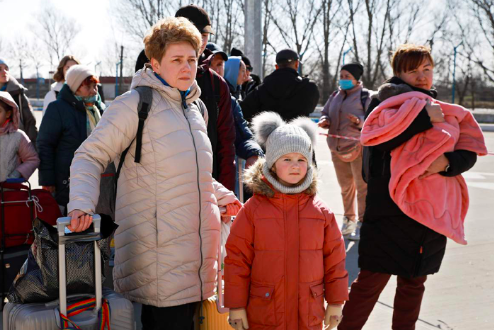UN Women and CARE International: Rapid Gender Analysis of Ukraine

The newly published Rapid Gender Analysis of Ukraine, carried out by UN Women and CARE International, focuses on the gender dynamics during the humanitarian crisis caused by the war in Ukraine. In addition, it gives numerous recommendations to the international community in order to address the risks and to make sure that recommended actions are implemented in humanitarian response.
The analysis was based on interviews and surveys conducted with people from 19 different regions in Ukraine between 2 and 6 April 2022. It reveals that the war and the ongoing humanitarian crisis largely exacerbate pre-existing gender and intersectional inequalities and discrimination. According to the report, the most vulnerable and marginalised groups are female-headed households, Roma people, LGBTQIA+ people, and people with disabilities. Another key finding is that gender roles are changing in Ukraine right now. Since many men have engaged in the armed forces or have lost their jobs, women had to accept new roles and new jobs to keep their households together. Although women play a crucial role in the humanitarian response, they are largely excluded from decision-making processes. What’s more, the war is increasing unemployment, pushing women into the unprotected informal sectors of the economy. Respondents also underlined the problem with access to health care services and humanitarian aid.
Key recommendations of the Rapid Gender Analysis:
- Ensure that humanitarian assistance is spread equally and addresses the special needs of women, men, girls, and boys as well as people from different marginalised groups, especially the Roma community, the elderly, and people with disabilities;
- Let young people and women be part of the decision-making process;
- Support women-led and women’s rights organisations engaged in response to the crisis;
- Make access to shelters inclusive and non-discriminatory. Collective shelters should offer sex-segregated and/or family-segregated accommodation;
- Fill gaps in services to respond to gender-based violence;
- Make sexual and reproductive health and maternal, newborn, and child health care a priority, including the clinical care of sexual assault survivors and ensuring access to contraception.

